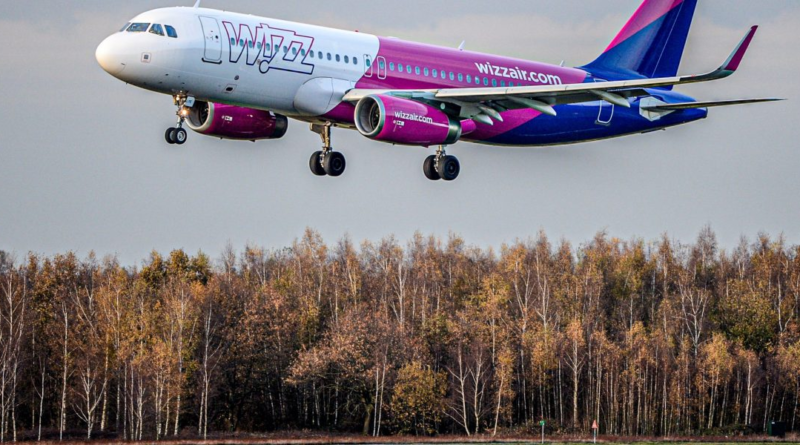Human feces could power your Wizz Air flight within 4 years
Airline operators are scrambling for new forms of fuel to power their jets without causing harmful carbon emissions. One smelly solution could be the use of human feces.
Hungarian budget airline Wizz Air has announced plans to run 10% of its flights with sustainable aviation fuel (SAF) by 2030, and it is turning to U.K.-based biofuel company Firefly, which turns sewage sludge into jet fuel, to make it happen.
‘Kind of disgusting’
Speaking to reporters on Thursday, Firefly CEO James Hygate described the biosolids used by the group as “kind of disgusting” but “an amazing resource.”
“It’s crumbly – like compost or wet chocolate cake,” Hygate said, as reported by The Guardian.
“There’s millions of tonnes of the stuff. And it has no intrinsic value.”
Firefly takes sewage sludge and converts it into two materials biochar and bio-crude. The latter can be transformed into jet fuel, while the former has agricultural uses.
Wizz Air first announced a £5 million ($6.3 million) equity investment in Firefly last year, as part of its move to reduce its carbon footprint.
Sustainable jet fuel has proved a tough nut to crack, leaving operators in a race to comply with regulators as the EU plots a minimum of 20% of jet fuel to be powered by SAF by 2035, rising to 70% by 2050.
Potential solutions have taken many forms, but there hasn’t yet been a silver bullet.
Speaking in September, Lufthansa CEO Carsten Spohr said the airline would need to use half the electricity production of its native Germany to survive solely on SAF.
“I don’t think Mr. Habeck is going to give me that,” Spohr said in reference to German energy minister Robert Habeck.
A spokesperson for Lufthansa told Fortune at the time that the airline would only be able to fly for two weeks on its current supply of SAF.
Smelly solution
Human waste won’t be the sole solution and is likely to be used alongside other fuels like kerosene. Firefly’s COO Paul Hilditch told ITV News there are enough biosolids in the U.K. to satisfy half of the country’s SAF demand by 2030.
Wizz Air is planning to incorporate the product into its aviation fuel by 2028, the group says.
That will depend on Firefly scaling up operations to a commercial level, which would be a world first for the fuel.
The company will start scaling with a factory in Harwich, Essex, which will serve two U.K. airports.
However, Firefly still needs regulatory approval and funding to make it a full-scale reality.
“Alongside fleet renewal and operational efficiency, sustainable aviation fuel (SAF) plays a crucial role in reducing carbon emissions from aviation,” said Yvonne Moynihan, corporate and ESG Officer at Wizz Air.
“Our investment in Firefly, which has the potential to reduce our lifecycle emissions by 100,000 tonnes CO2-eq per year, underscores our commitment to mainstream the use of SAF in our operations by 2030.”



